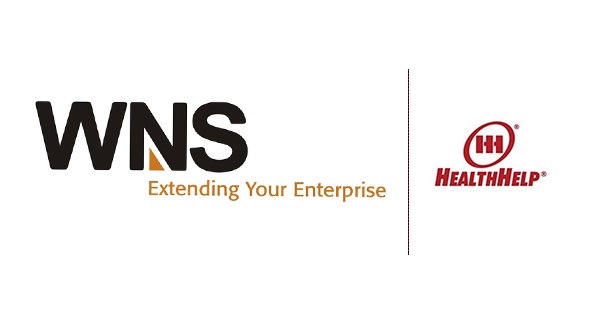“Denial is not an option.” Contrary to the typical (and here, oversimplified) pre-certification, “approve” or “deny” approach to utilization of services in health care, HealthHelp launched a new model of utilization review based on the premise of non-denial procedures, and that utilization management is about collaboration and education. HealthHelp taps into its evidence-based database and network of physicians and academics to review and approve or to recommend alternatives to procedure requests. In tandem, HealthHelp drives studies and education opportunities to lead to better medical and financial outcomes when providing or using health care services. In short, the company that WNS just acquired is building out a patient- and healthcare provider-centric approach to utilization management designed to match procedure and treatment to the patient’s needs and network.

HealthHelp took roots in the founder’s own pain
The HealthHelp approach is tied to the experience of its founder, Cherrill Farnsworth, who found the number of denials and appeals she managed for radiology procedures discouraging and painful. Thinking about “how to do this differently… why do we have to deny”? Cherrill tapped into her network of people at medical centers and universities, creating a collaborative model on the premise of using data, insights, and education. Instead of a review, approve/deny, the approach is review, approve and/or educate and/or recommend. The approach uses an increasingly sophisticated system of data, digital technology, and relationships. HealthHelp is taking product development further into the realm of machine learning and artificial intelligence, as well.
What gives HealthHelp the “right” to make recommendations to healthcare providers and patients?
An approach like this one—essentially, a break from the norm—depends on the credibility of the data, technology, and people involved. HealthHelp faced the challenge in the early days of people not being sure that a “non-denial” approach would be effective for containing costs. With 15 years of data, though, the company has been able to ingrain a lot of experience and knowledge into the approach and platform, to the extent that now 75% of prior authorization requests get approved for providers or are responded to with recommended changes that are approved by providers, without any human intervention. In about 25% of the cases, it goes to nurses for review; 6-7% of which are forwarded to doctors, and after that, the provider has the option to and can still disagree and go with treatment, which happens in under 0.5% of cases.
Results to date show improvement in the quality of care, which impacts Star and HEDIS ratings and reduces the cost of care by making sure the right kind of care is provided versus the lowest transaction cost at a point in time. Also, in a fee-for-service model, a healthcare provider gets paid for the procedure regardless of the result. As the industry shifts to value based care with payments tied to outcomes, approval based on evidence or alternatives becomes more strategic to positively impacting outcomes (and payments). This approach, therefore, seems to have further credibility in the value-based care model and can help healthcare providers move into the new world of healthcare. HealthHelp worked with CMS to get approval to qualify this program under provider education/quality improvement initiative and thus be included in the 85% Medical Loss Ratio for health plans.
The acquisition by WNS brings a complement of resources to both organizations and its client base
The healthcare industry is so ingrained in a yes/no approach that it took a few years before the model got adoption, primarily with mid-tier healthcare organizations. Joining with WNS gives HealthHelp the opportunity to scale and support a broader range of payers and providers. WNS also has a wealth of analytics capability, talent development and industrialization expertise that is complementary to HealthHelp, with resources that can help expand and develop the services and technology platforms to impact healthcare outcomes more broadly.
The acquisition of HealthHelp is part of the WNS strategy to shift attention from the cost of transactions to the cost of quality care and support—towards patient centricity. To date, WNS’ work in healthcare has been mostly analytical and transactional services: billing, collections, provider network services, and claims processing. HealthHelp brings in clinical and operational expertise to impact medical, as well as administrative outcomes, thus closing the loop. It also brings a human-centered (aka design thinking) approach to solving problems and developing a new business capability that the healthcare industry needs.
Posted in : Healthcare






